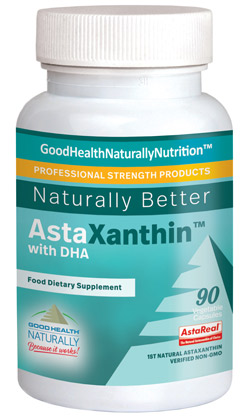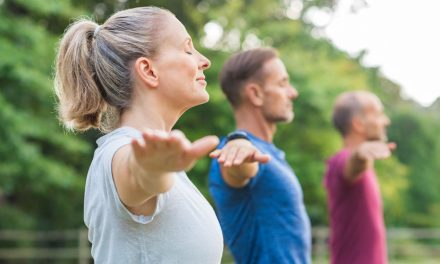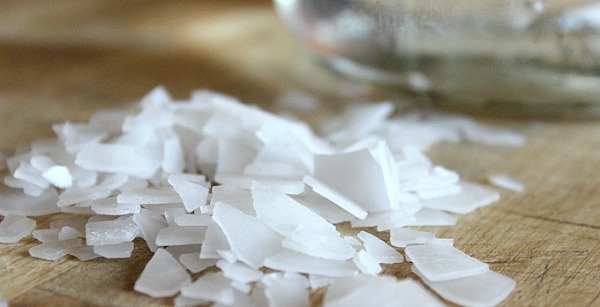Astaxanthin may be highly effective against both mental and physical fatigue, according to new research. Japanese research published in the Journal of Clinical Therapeutics & Medicines [1] states that individuals were treated for Astaxanthin for 8 weeks within a double-blind placebo-controlled study.
The purpose of the study was designed to induce fatigue and stress, usually encountered within daily life. Participants were involved in both a mental and a physical challenge to assess their before and after on stressor tests. On the mental challenge, individuals were subjected to timed calculations (the Uchida-Kraepelin test) and the physical test was with a bicycle ergometer. The study reported the following, “Thirty-nine healthy subjects reporting awareness of fatigue were divided onto two groups. The subjects in one group (Astaxanthin group) ingested 12mg of astaxanthin and 20mg of tocotrienols for eight weeks. The other group (control group) ingested 20mg of tocotrienols for eight weeks”.
The visual analogue scale (VAS) also showed that the Astaxanthin significantly reduced any perceived symptoms of mental and physical fatigue, when compared to the placebo. Results from this included clarity of thinking, improved concentration, mood and motivation. While feelings of irritation and body heaviness were considerably reduced.
Within the calculation test, there was an increase in errors in the placebo throughout the second half of the test and this was eliminated in the Astaxanthin group. Supplementing with Astaxanthin was also found to significantly reduce salivary cortisol, a biomarker for stress. In conclusion, the study found that “The results suggest Astaxanthin supplementation has beneficial effects on fatigue encountered in daily life”.
The trial also evaluated the most common type of fatigue experienced throughout our daily routines; both mentally and physically. The medical advisor behind the study said that Astaxanthin can suppress and fight both types of fatigue, while improving performance. Fatigue is a common complaint and this natural ingredient has been shown to improve this common condition.
Previous studies have found evidence that Astaxanthin or algae-sourced carotenoids can support skin health, the anti-ageing process, cardiovascular health, cognitive function, muscle performance, immunity and vision amongst other benefits.
Awareness of the potential benefits of Astaxanthin is strong, especially in the US, and it’s only a matter of time before more studies are taken into consideration. Astaxanthin is a naturally occurring carotenoid and marine based antioxidant that can help to naturally reduce free radicals within the body. It can also significantly reduce the oxidative load within the body by protecting cells from oxidation.
Recommended Examples
 AstaXanthin™ with DHA is a high-quality natural antioxidant that combines pure DHA* and AstaReal® Astaxanthin. This provides a perfect balance for efficient and effective absorption in the entire body and the brain, where all three play a protective role in helping against mental and physical fatigue. This is the most studied Astaxanthin in the world and may also help to provide protection for the skin against UV radiation.
AstaXanthin™ with DHA is a high-quality natural antioxidant that combines pure DHA* and AstaReal® Astaxanthin. This provides a perfect balance for efficient and effective absorption in the entire body and the brain, where all three play a protective role in helping against mental and physical fatigue. This is the most studied Astaxanthin in the world and may also help to provide protection for the skin against UV radiation.
Source:
[1] Journal of Clinical Therapeutics & Medicines 32.7 (2016): 277-91. (Japanese)
“Randomized controlled trial of the anti-fatigue effects of astaxanthin on mental and physical loads simulating daily life.”
Authors: Hongo, N. et al.
*EU Claims on DHA*
Scientific Opinion on the substantiation of health claims related to docosahexaenoic acid (DHA), eicosapentaenoic acid (EPA) and brain, eye and nerve development, maintenance of normal brain function, maintenance of normal vision, maintenance of normal cardiac function: “maternal health; pregnancy and nursing”, “to fulfil increased omega-3 fatty acids need during pregnancy”, “skin and digestive tract epithelial cells maintenance”, enhancement of mood, “membranes cell structure”, “anti-inflammatory action” and maintenance of normal blood LDL-cholesterol concentrations pursuant to Article 13(1) of Regulation (EC) No 1924/2006.
Research article originally appeared in Nutraingredients-USA






Any recommendation for depression after child birth? But last long after child birth.
Hi Maria,
For depression, please follow the Depression health plan outlined here: http://serrapeptase.info/depression-health-plan/
Lithium Balance could help with supporting a healthy mind, while Relaxwell can manage stress and induce relaxation.
I think you research health problems very well Robert thank you for your newsletter (which I look forward to reading )In 2007 your advicess well as a little research of my own and several of your products helped me beat Womb Cancer I’m still alive because of your products and because I didn’t take chemotherapy and had only one or two diagnostic X rays doctors are dangerous to health they use all the wrong things and give the same old advice not learning any thing to quote Einstein toxins in the body cause dopamine (the body’s oxygenator)to fall then prolactin rises and you have a tumour every time this happens tumours are produced to seal off toxic chemicals or toxins from the rest of the body
To continue I normally produce a lot of natural dopamine and have low blood sugar (this is key in warding off germs as the go for sugar to breed their toxins cause a lack of oxygen so those folk like me who produce a lot of dopamine can oxygenate and fight germs better and if ones bodyhas low sugar germs can’t breed and make toxins so the body won’t produce tumours chemo. And xrays are toxic so doctors are fuelling the cancer by usin g these see the mag.what doctors don’t tell you Nov 2016issue there is a lady like me who detoxified and the tumour disappeared!because a toxic body overload causes it I’ve had 4 different cancers and wondered why I fought the prolactinoma cancer the breast cancer the personal part cancer so well but they were brought on me by psychiatrists over the years giving me toxic psychiatric drugs see Dr peter breggin and some other good docs about toxic psychiatric drugs and other so called medicines at the moment I have a CTO order on me that will force me back to hospital the NewhamCentre for mental health is the hospital the tribunal will be there on the 12th of DEC at 2oclockto try to keep from not going for injections that are enforced against my will I’m told if I don’t take their toxic drugs iwillbe taken by police to hospital against my will and given haldol injections in hospital god knows how long they will keep me there 3years last time and given crap microwaved food that never heals a body weakened by doctors drugs over a43 year period now the psychosis was brought on me by anti tuberculosis drugs and diazapam given me by a chest physician now dead who said at the time “you may have a few mental problems but they will go” 43years later he’s dead and I am forced to take antipsychotic drugs against my will that because I’m now 65 I don’t produce enough dopamine as I did in my youth so I now have two Huge tumors to deal with in my kidneys areas which if they remain to long will become cancerous as before this time the will say I have no ability to make a decision to refuse chemotherapy and xrays (which I now know is the reason everyone who takes that rubbish dies)they did this when I had the womb cancer but I had a better psychiatrist then who know know was forced to bring in another doctor who was Chinese I like Chinese people and fortunately for me I talked to her all about Chinese medicine and ying and yang etc she definitely Kew I had capacity! So I then had to stop the womb bleedind as a medic told me if the cancer is progression one continues to bleed so I researched and found cinnamon powder taken plentiful stops epithelial bleedingit did in a month or less!so I was cured without losing my Womb! To return to injections in early died 6times with them as if the are injected a certain way they can stop the heart (heart attack)but as I love ginger tea and had it in my hospital room I took it when my heart was failing after the injections therefore again the Chinese saved my life(through gingertea I had read Chinese medicines use of ginger for heart trouble it worked every time!so you can see I am a survivor of a bad NHS system which was ruined BT churchills use of pharmaceuticals in the NHS which was ruined these drugs!
Thankl you Robert publish this!